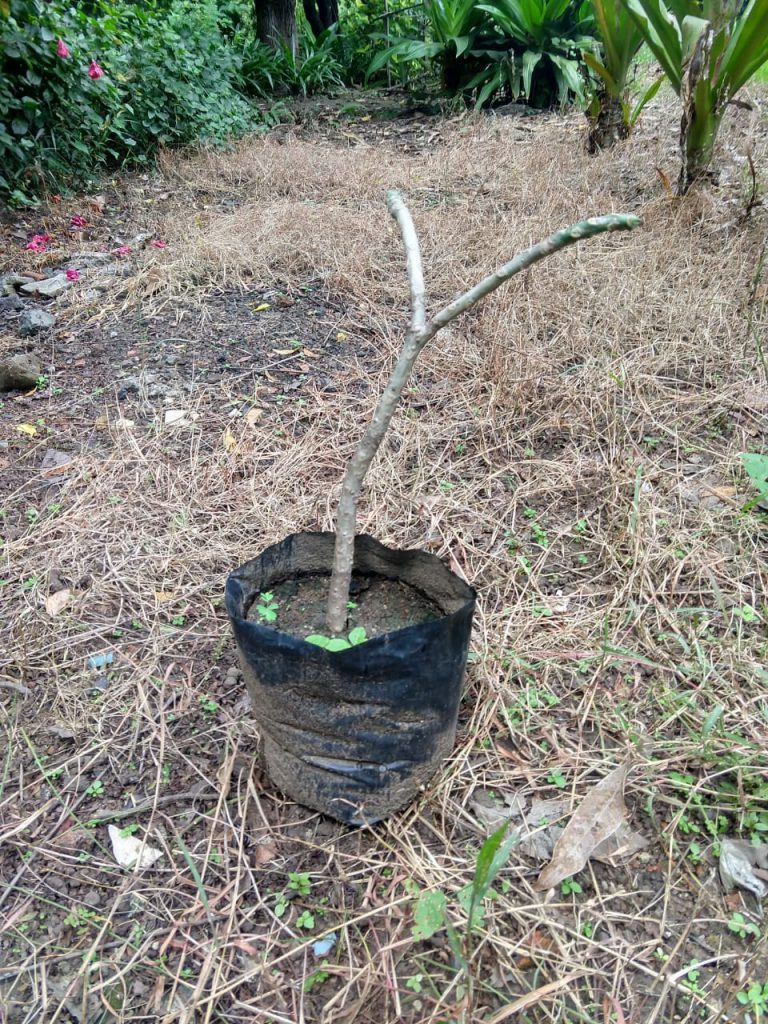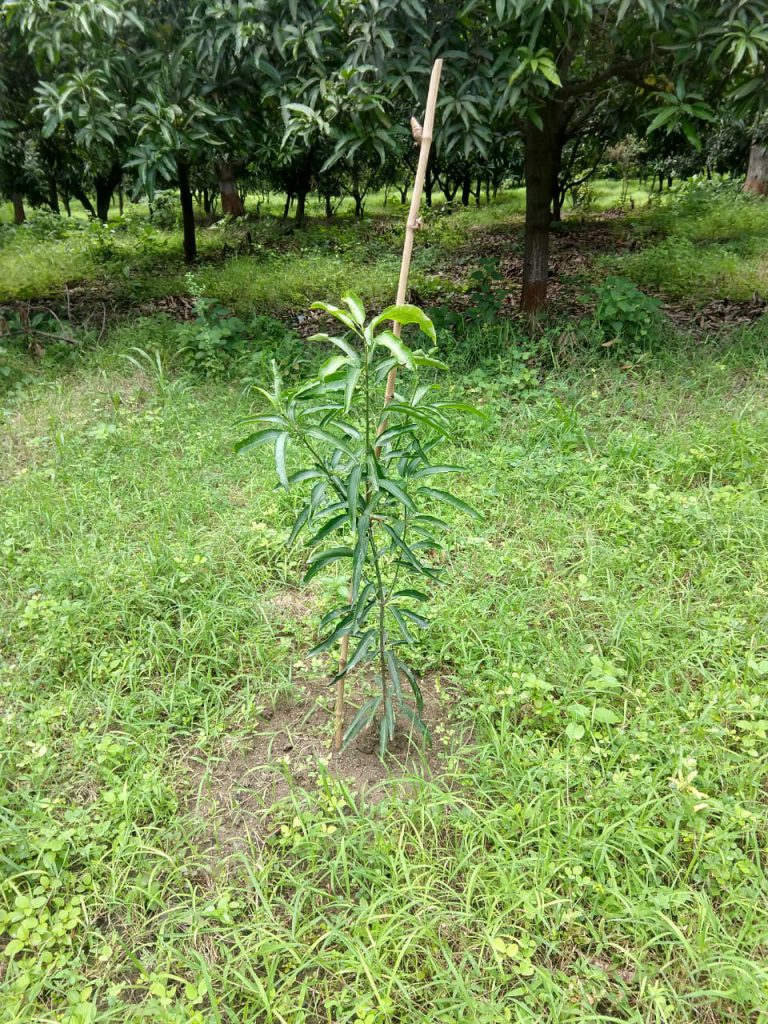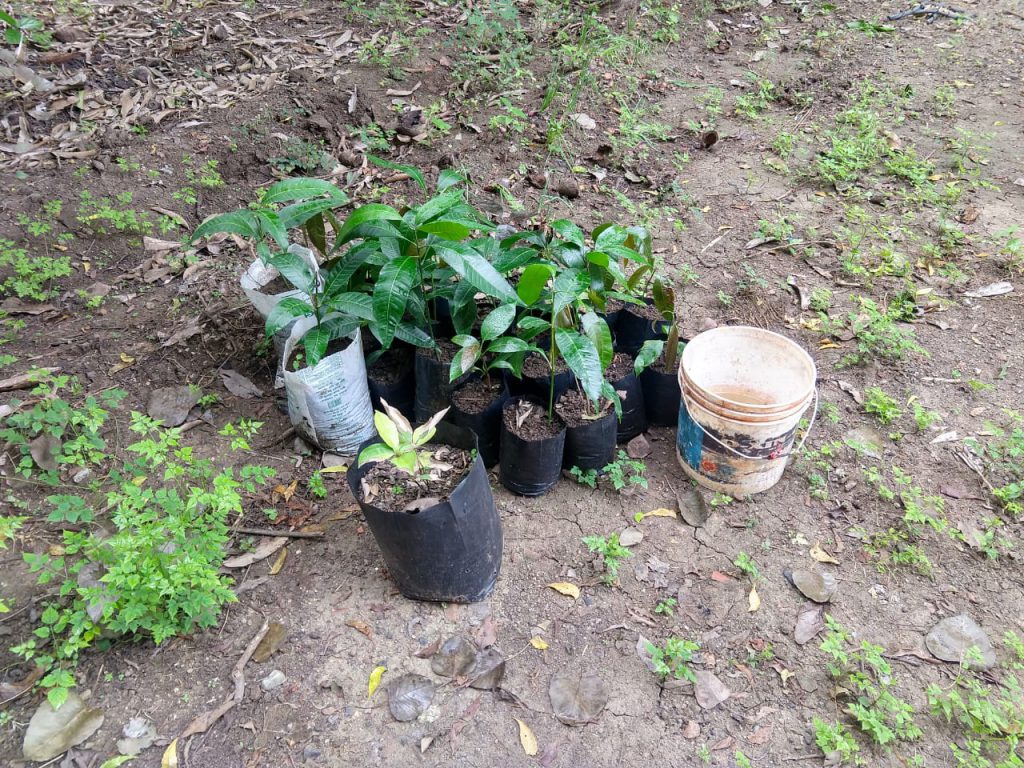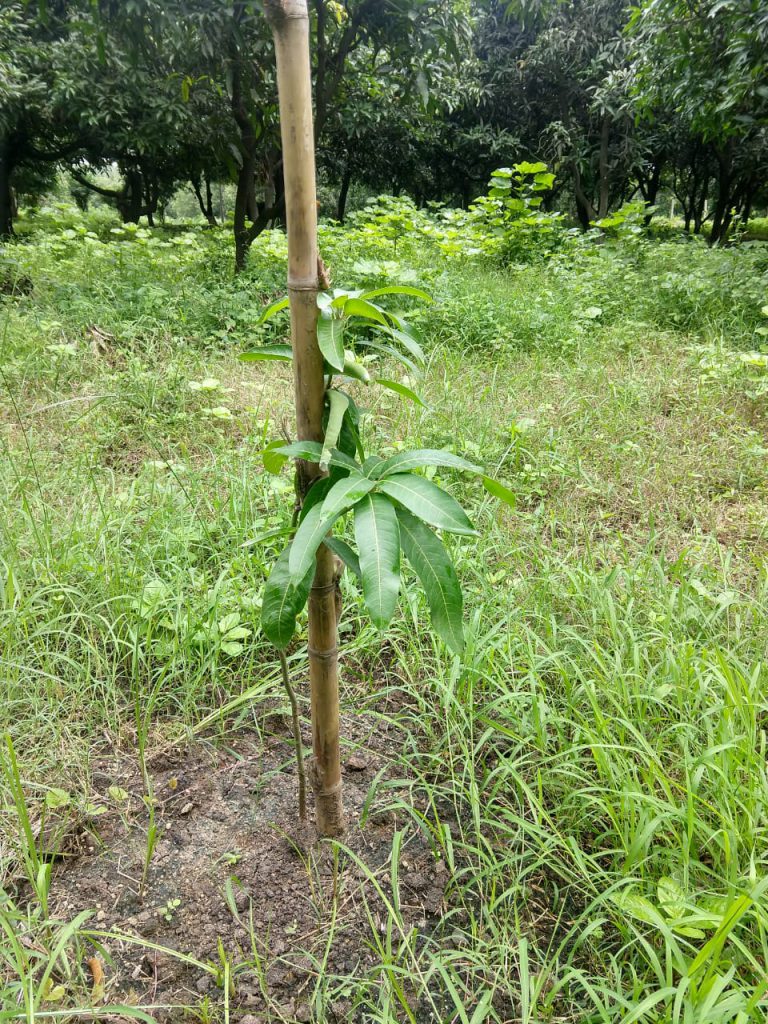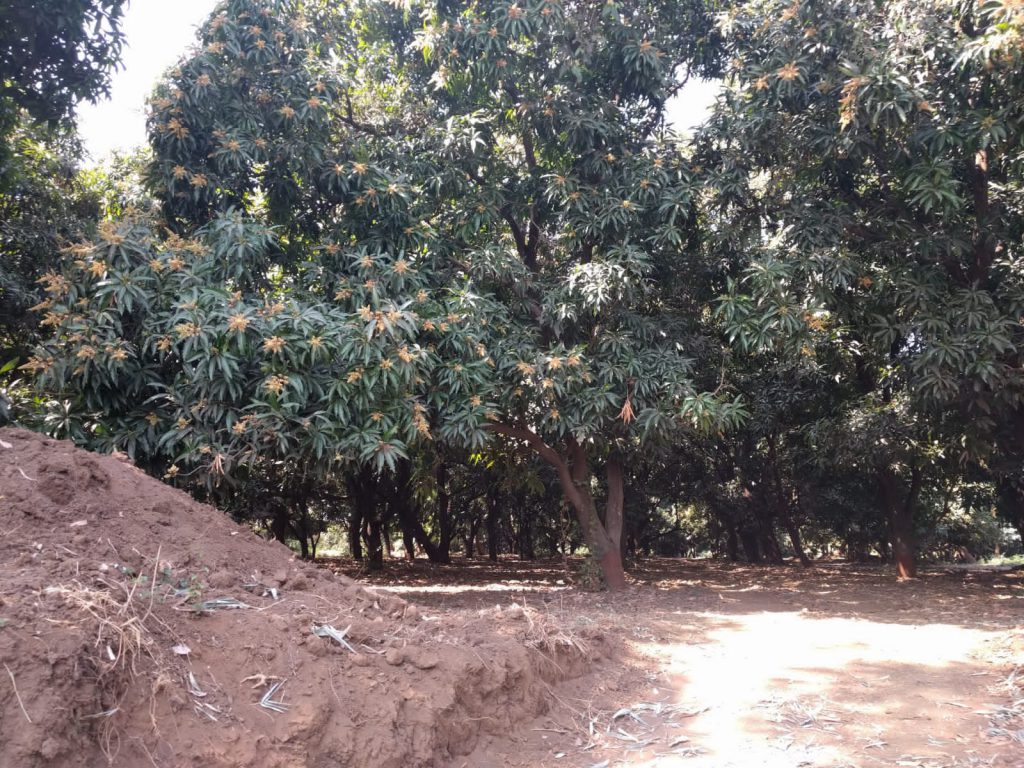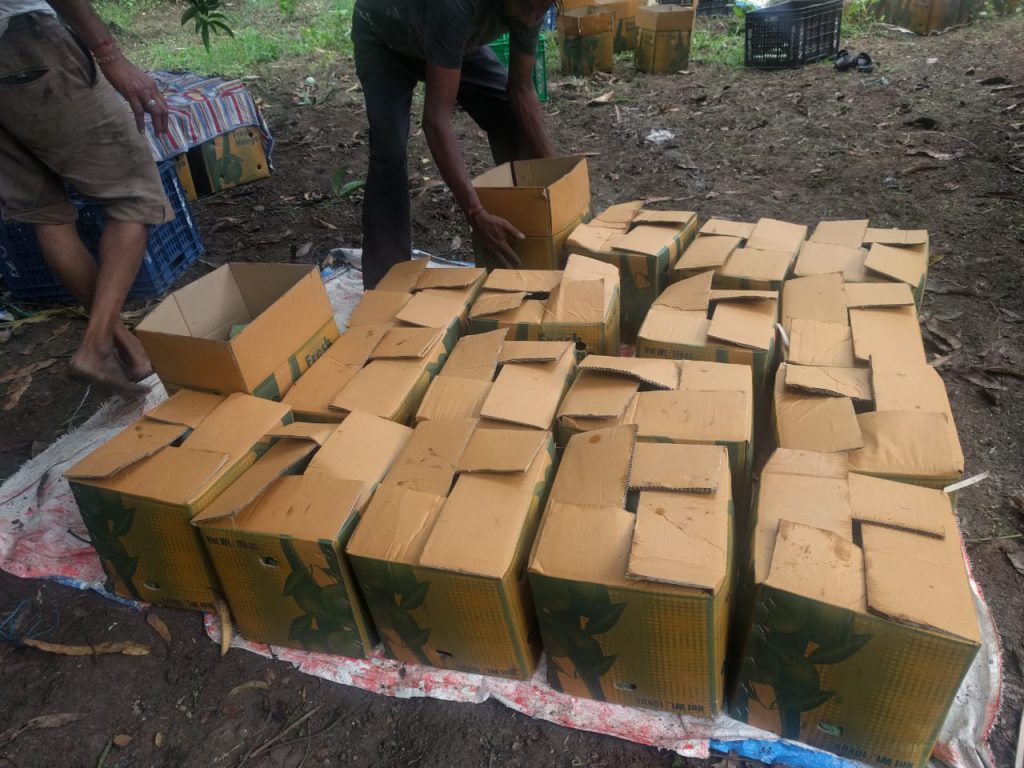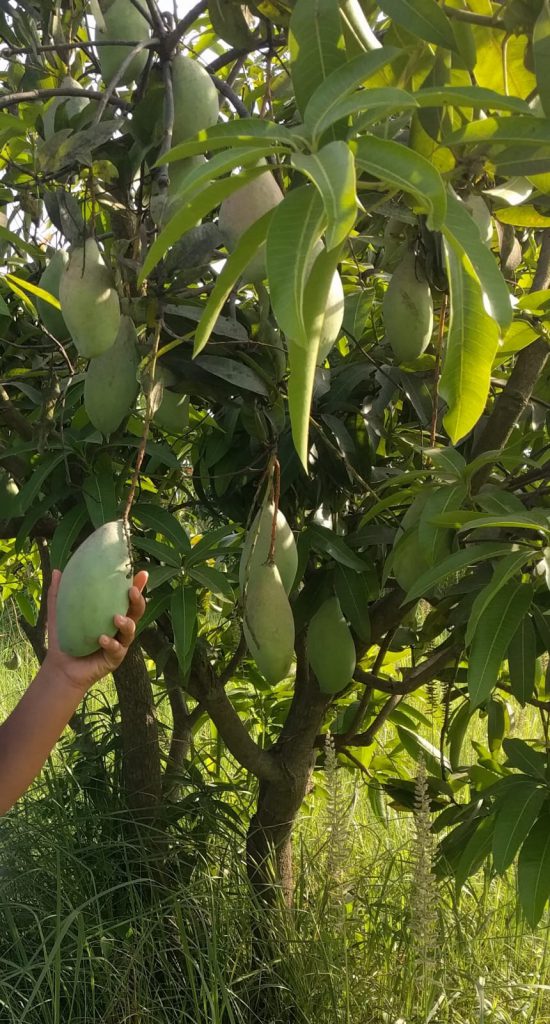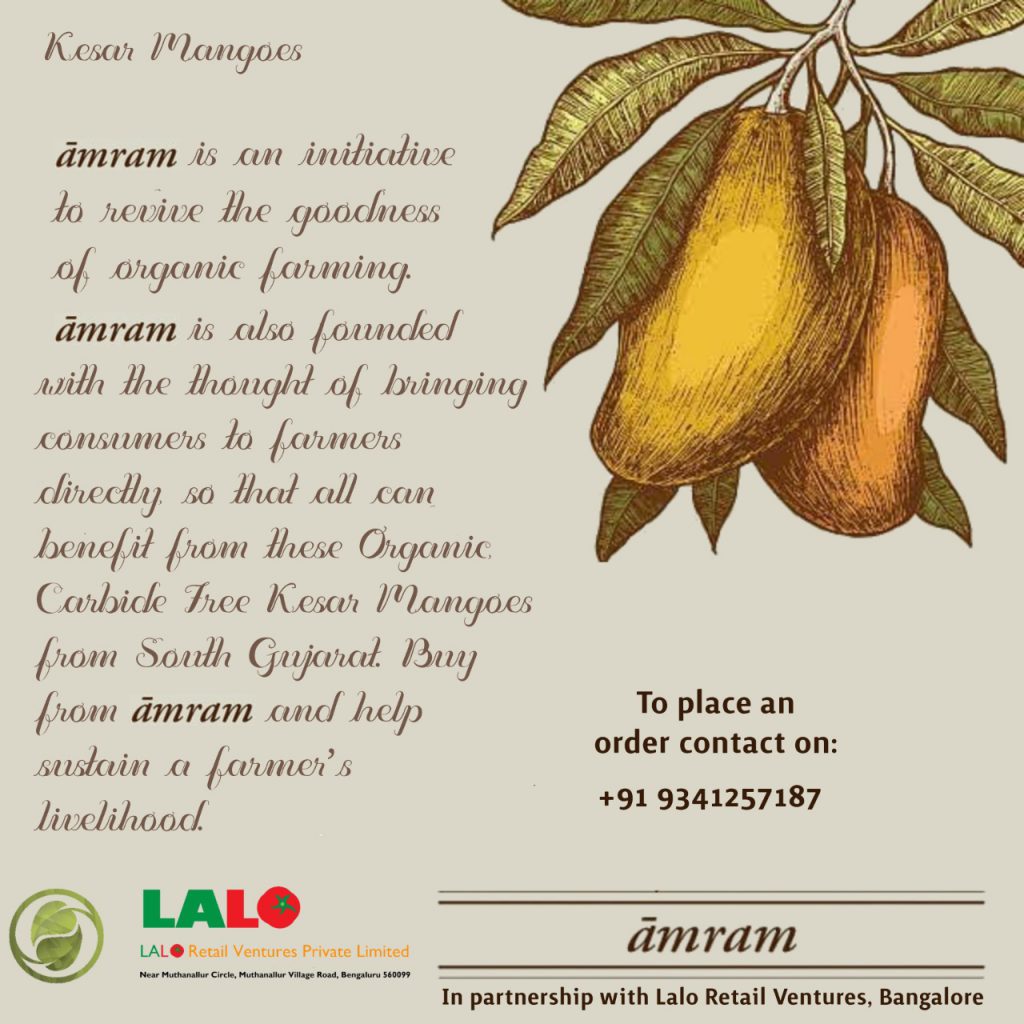I conducted my CAS Experience by myself and with the help of some family members. For this experience, I and some family members started an initiative called Aamram in which we sold mangoes grown on our farm to a company that helps farmers sell them at a reasonable price and also promote organic farming in Karnataka, lessening the use of factory-based farming products and using natural ones instead.
I did not do any of the physical work as it was given to the people hired to do so, and as they were from a remote place, it also helped increase employment. My field was related to the organizing and technical fields. My strengths were thinking about the benefits of shipping the mangoes to the company, and my weakness was supervising the hired people as I do not have the skills to bargain, argue, or order someone to do something for me.
I do not feel any difference by knowing about my weaknesses as I already knew them long ago. Since childhood, I was very conservative about places like local markets, where my mother used to bargain to get lower prices which affected the earnings of the shopkeeper.
It is important to know about our strengths and weaknesses as that helps us develop as human beings and makes us better as there is nothing you can’t learn. I haven’t yet overcome my weakness, and I don’t think it would get any better as I have a very conservative attitude. I’m not particularly eager to get into arguments often, especially with people I don’t know personally. However, overcoming this weakness might have benefitted me during the experience where I had to increase the number of mangoes needed to ship to Karnataka. If I had argued with the truck driver, I wouldn’t have been required to send another truck, which was smaller, by the way, to Karnataka, which almost doubled the prices I needed to pay to send them.
The most challenging task was to make sure that the mangoes shipped were proper, undamaged, and unripe as they would ripen over time and as the duration of mangoes in the truck and the time it would take to get the mangoes to the company and then to the farmers, the mangoes had to be as unripe as possible as the time duration was long. Hence, the mangoes to be shipped were freshly picked by professional workers. It was challenging as I had to cooperate with people I did not know and trust them to make the mangoes reach their destination in time.
I had not done anything similar before at the time. I overcame this challenge by getting the contact information of all the stakeholders responsible for shipping the mangoes, which included the truck drivers and the company that provides the trucks.
I constantly kept reminding them by calling them to check the mangoes at regular time intervals. Undertaking this challenge was new to me as I have not organized something as significant as this in terms of scale. There is no new skill that I developed; however, now, I can climb trees better and faster, and also, my time-management skills have improved drastically because of the experience.
The skills I developed in this experience would be essential as time management will help me throughout life. These new skills make me feel more confident. It is important to undertake new challenges as combating and enhancing yourself through challenges makes you help develop new skills which can be of need in later stages of life.
I organized myself by making a schedule and constantly conducting phone calls with the company the mangoes had to ship to. Usually, I am not a very organized person in terms of daily life. For me initiating this experience was easy because I had a lot of support from all the members included in the experience.
Planning was a bit difficult for me as I am not used to contacting so many people. Still, it was only for 3-4 weeks, so somehow, I managed it. It was difficult because of the number of people and because I lack organization skills that I developed a lot during this experience. My organization skills have improved; therefore, planning and initiating something would be much easier in the future.
Not specific to activities, but planning and initiating something creates a path for oneself based on the choices one makes. These plans and initiatives can map out the type of person one wants to be. These plans can help people be organized and see their initiatives and end goal, which is vital to foresee.
Showing commitment and perseverance was necessary as, without it, the experience might have become a failure and hundreds of kilograms of mangoes would have gone to waste, and my principle is to waste as little food as possible; hence constant reminders to the other stakeholders showed my commitment and perseverance to the experience. It made me feel exhilarated as I was very engaged with the experience, and a bit stressed as I also had constant thoughts about the worst-case scenarios. Nevertheless, the experience was successful. Commitment depends on the thing you do; if you are genuinely passionate about something, you will be committed to the task. Commitment and perseverance go hand in hand with each other if you are committed and determined to do something, you will automatically be persistent.
Working with other people again depends on how well I know them; generally, it is easy as the other person understands as well. However, in this experience, I did not have an easy time collaborating with people as I had no place to put my inputs during a conversation, and I only had to listen and act accordingly. So, for them, it was good, but for me, it could have been better. The truck drivers were the most difficult people to deal with; I dealt with them by proceeding with the plans according to their convenience. According to the company to which we shipped the mangoes, working with the farmers was easy as they saw huge benefits in organic farming and got educated a bit about the soil and plants.
It is important to work collaboratively as other people can identify your weaknesses much easier than finding them yourself, which helps you improve. Without teamwork, nothing would have happened in my experience as the collaboration between the truck drivers and me made the mangoes ship to Karnataka. The collaboration between me and my mother, who is an interior designer, helped me create a poster for the experience, the company which became a medium for us to help farmers farm organically, and lastly, the farmers who made this experience possible by giving organic farming a chance.
Although at a very minute scale, the globally significant issue I catered to during this experience were climate change and unemployment for farmers. I helped contribute to eight of the UN’s Sustainable Development Goals:
- Number 1: No Poverty – as poor farmers who were experienced were given priority to be enabled to become self-employed.
- Number 2: Zero Hunger – the people who initially did not have sufficient food for their families will now have it as they are self-employed and not relied on any retailer.
- Number 3: Good Health And Well-Being – eating sufficiently will develop a person’s health, and the farming activity, which is heavy physical work, maintains the calorie for the farmer.
- Number 4: Quality Education – although very brief and not technical, the farmers were given knowledge through lectures by the company: Economics: economics of the food market. Chemistry: chemistry of the soil, DOs and DON’Ts of the fertilizers and other chemicals used during farming, and benefits of organic farming in terms of chemistry. Biology: the biology of plants and why organic farming would benefit the fruits and vegetables from it.
- Number 8: Decent Work And Economic Growth – this experience was explicitly made with two goals in mind, promoting organic farming by reducing the use of harmful substances in agriculture and helping the farmers, especially those who have migrated from the North and are unemployed.
- Number 11: Sustainable Cities And Communities – organic farming will reduce soil pollution, make the soil more fertile, and reduce the number of fruits or vegetables with defects which will help the farmer and the consumer.
- Number 13: Climate Action – although very minute in scale to the whole world, organic farming helps nurture the plants and reduces soil erosion.
- Number 15: Life On Land – as plants are ‘life on land,’ improving the quality of the soil will help plants, and also because of organic farming, it would harm insects and other insect-like organisms.
I knew that these issues affect globally, as mentioned on the United Nations’ website for Sustainable Development Goals. It improves my personal growth by giving me a chance to contribute to saving the planet, and now I also check if the food I am eating is organically farmed or not by asking the seller or by reading the package, if any.
It makes me feel a bit relieved as I have worked quite a lot to help the climate and the quality of life for farmers, although not many as I did not have a greater reach, but some is better than none. Now onwards, I am determined to help nature in any way possible.
Regarding the ethics of this experience, I helped resolve the ethical issues which occur in traditional farming methods by apply organic farming. Such as the death of many insects and other animals who base their food on plants, soil erosion, and so on. The ethical issues I faced were indirect as they did not directly affect me as I do not eat leaves, and even some of the leaves I eat are not eaten straight off the branches. I further reduce the ethical issues by making sure that the product I consume is organically farmed or not.
The main problem is the death of animals and the wastage of land due to infertility through inorganic farming methods. This issue made me feel disgusted, and as soon as I researched about this and started my experience, I kept check of almost every grocery product bought in our house.
Before and after this experience, my opinion has stayed the same: organic farming is much more beneficial for consumers, farmers, and the environment than inorganic farming. However, inorganic farming has economic benefits to the retailers as it is considerably easier to maintain, and it could be manipulated to get more products.
In India, these economic benefits for the retailers are then used to exploit the hard work of farmers who work for a measly income that is near or sometimes even lower than the minimum wage. My experience helped close the gap between the income of a farmer and the retail of the fruits and vegetables sold by the farmer by removing the need for a third party that provides the inorganic materials. And as the materials for organic farming are available naturally, the farmers do not need to rely on any brand which exploits them in the name of selling them chemicals. However, the downside to this is that the product will be at the natural rate, and it would be difficult to maintain.
The Learner Profile Attributes I demonstrated in my CAS experience were Open-Minded, as I understood the point of view of the other stakeholders in this experience, Caring, as I showed my care towards the environment, Inquirers, as I constantly kept asking about the conditions of the mangoes to the truck drivers, Risk-takers as I invested some amount of money in the experience and if it failed I would’ve lost it all for nothing and also trusting other people who can back out from a experience and blame an incident on something else, Principled, as I created a schedule and worked accordingly, and Communicators, as I communicated with every stakeholder of the experience at regular intervals of time.
This activity was created to benefit others which include the farmers who third parties are exploiting. My perspectives or values weren’t changed as the experience was based upon them. My learning about organic farming helped farmers farm their products while also not damaging the environment. This experience achieved success; this made me feel relieved and satisfied. The end of my activity made me feel a sense of accomplishment and enjoyment as I dedicated a lot of my time to this activity.
My learnings from this experience are my organizational skills and self-management skills. If I were to do something like this again, I would change my opinions and argue with people to complete a specific task my way. Organizational and self-management skills will be of use throughout one’s life, as to function day-to-day in this society, a person has to be organized. Self-management is also needed throughout life as a lack of self-management can affect one’s health. I would like to stay updated with the improvement in a farmer’s income and do this again if excess mangoes remain to further influence more farmers to initiate organic farming in their farms.
Personal choices and actions model empathy, compassion, and respect towards others as one can see that a person’s actions take your input and condition into consideration and vice versa. This CAS experience helped me as a student to become a genuine inquirer as I had to contact other people and ask them questions about the conditions of the mangoes and also to learn something from the representative of the company our mangoes were shipping to.
Finally, the ethical issues that arise during a CAS Experience or CAS experience or any other activity, in general, help become principled as there are many factors and ethical issues to be considered in the real world which limits the result of a experience or a task, and not like school where only theoretical possibilities may occur. CAS Projects and Experiences allow us as students to experience real-world issues through CAS experiences, making us principled in the later stages of life.
Evidence:
